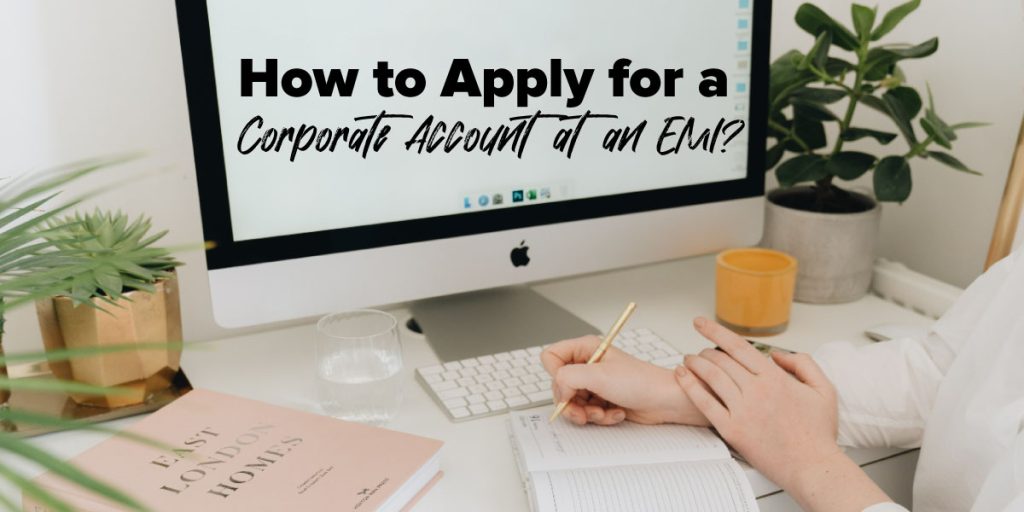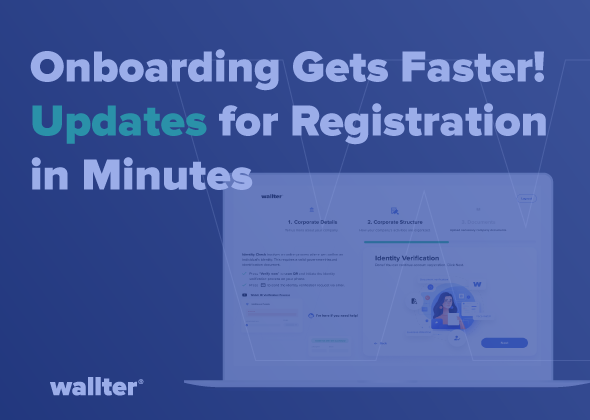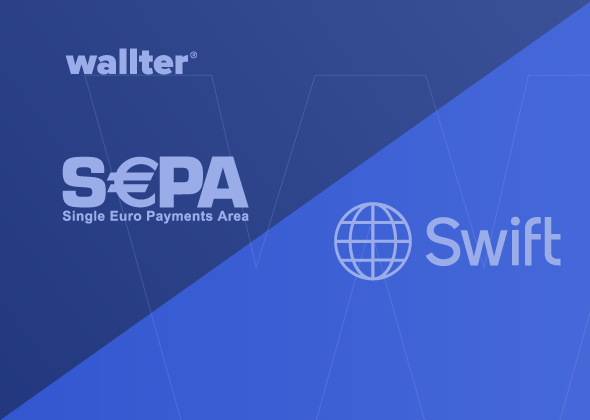Many prospective clients claim that the onboarding process in most organizations they tried to apply to was long, tiering, and frustrating. Still, there is no need to stress — each organization has its own unique onboarding demands and requirements, the basic requirements remain the same in all of them.
In general, there are some things any prospect can do to make the process less stressful, quicker, and easier all around. Dailly Gelber, DCCO Wallter®, has summarized how to prepare for applying for a corporate account at an e-Money Institution.
Prepare Your Documents in Advance
Compliance to regulatory demands requires checking, validating, and confirming a lot of documents and information. Therefore, you should ensure that you have a complete set of documents prepared in advance and submitted all at once, as it will save you plenty of time and energy.
If you don’t submit everything at the beginning of the onboarding process, the request for the missing documents and information will follow, which is bound to prolong the onboarding process and even cause some potential frustration in some instances.
There are three types of documents you should provide:
1. Corporate documents
These are your company’s main corporate documents. You should have a clear copy of the set of documents, including:
- Certificate of incorporation (COI) – Most jurisdictions provide you with this document when you register your company. It is an official document which proves that the company has been legally formed and registered.
- Company Extract – This is a summary of the company details. Some jurisdictions do not provide certificate of incorporation.
- Certificate of name change – If you ever changed your company’s name, you need to have ALL certificates that account for ALL changes. In some jurisdictions, this might also be visible on the company’s extract.
- Articles of Association (or By-Laws) – This is a set of documents that was prepared and presented to the official authorities, describing the company details and procedures.
- Certificate of Incumbency – This document is asked when the company does not have an Extract from Registry to prove the structure and other information.
- License – If your company’s activity requires a license (for example Forex, Gaming, Liquidity Provider, etc.), you should have a valid one.
There may be additional documents you should have prepared, in the following cases: - If your business activity is one that usually requires a license, such as Crypto, Forex, Gambling, etc., and you are incorporated in a jurisdiction that does not require you to have such a license, you should provide a Legal Opinion stating that fact, declaring by which laws you are exempted from having a license.
- Declaration of Trust – When the shareholder is holding the shares on behalf of someone else, a declaration of trust from the shares owner to the trustee is required.
- Power of Attorney – When the person signing the documents is not a director in the company who has signing rights, or when the person assigned as an authorized signatory for the company is not the director, a power of attorney is needed, allowing him to sign on behalf of the director / company.
- Service Agreement – If your company is established and serving clients already, you should provide service agreements with one or two of your clients. It is NOT a legal or regulatory requirement, but it would help us understand your business.
In case the original documents are not in English, you will need to have them translated to English, and the translations should be notarized, as well.
In some cases, these documents will also need to be apostilled. We do NOT recommend apostilling them in advance, as for some documents the apostille should be not older than 3 months.
2. Internal forms and documents
Every financial institution has its own set of internal forms and documents. Our internal forms include documents such as:
- Application Form
- Merchant Agreement
- Business Activity Form
Depending on your business activity and risk, there may be additional forms required.
3. Personal documents
These documents are required from any individual in company structure:
- Beneficial Owner
- Directors
- Shareholders holding 10% or more shares
- Assigned Signatory
- PEP Declaration – This form confirms whether the individual is, or is not, a Politically Exposed Person.
- Proof of Address – A valid proof of address, not older than 3 months.
- Online identification – This document will be required during the onboarding process. Make sure your passport or identification card is valid and in good shape. You will need to use the original document for this process, not a copy of it.
We will authenticate whatever we need online, be it your incorporation documents or your license. It would be easier if you make sure your details are fully updated in all registries and authorities. That way, there won’t be any discrepancies between the online records and the information you provide.
Once all documents have been prepared, you can submit them in one batch. That can save a lot of time, as you will avoid sending back-and-forth emails trying to collect missing information and documents.
What About Signatures on All These Forms?
The internal forms should all be signed by a director in the company or the authorized Assigned Signatory. Signatures cannot be copy + pasted. They can be handwritten/wet ink signatures or digital signatures if you are using a verified service to validate your digital signature.
We understand that todays’ world, certainly since Covid-19, has turned more digital than ever before, but we must adhere to legal requirements, which dictate that a copy-pasted signature is not valid, and cannot be accepted.
Why Are There So Many Questions, and How Should You Respond?
We ask the questions we need answers to in order to evaluate the risks we face as a financial institution.
Answering all the questions and providing elaborated answers is another good practice. After all, if we do not understand what you mean, or if we find missing information, we will need to contact you for clarifications, which will elongate the onboarding process.
Also, please remember that we may not understand your business as well as you do. Therefore, when you explain about your business activity and your needs, please do so in layman’s terms. Remember that longer answers are preferable to shorter, one-worded, ones.
For example: When we ask you about the source of wealth, the answer cannot just be “Wage”. You must elaborate on it and provide supporting evidence.
What If Some Information Is Omitted?
We wise you not to do this. Be truthful and upfront. Your information is safe with us, as we are bound by bank secrecy and confidentiality arrangements. After all we share a goal – to be able to open the account for you as quickly and as efficiently as possible, if possible.
Hidden or untruthful information will most likely be discovered and revealed during our onboarding process, and would not reflect favorably on you. Furthermore, by being upfront you will assist us understanding your business better and having less unanswered questions.
Include Your Websites
Online businesses, which serve their clients online, are required to have an active, fully functional website. As a result, we will need you to list all websites you own and use and provide a proof of domain ownership for each one of them. Bear in mind that the company needs to be the owner of the website, not an individual within the structure.
If your website is not yet live, please share in advance your expectations on when it could go live.
If your website is only accessible from specific jurisdictions, or requires credentials to access it, please share those details with us upfront.
Be Available
Once you’ve submitted everything, the onboarding team starts the review. Make sure you are available to answer questions and provide any additional documents needed.
Please note that evasiveness may raise suspicion. Plus, not responding quickly to our requests or delaying providing what we ask for, will only prolongs the onboarding process.
To Sum It All Up
The best practice is to have all your documents ready for submission, provide detailed answers to all the questions and be upfront and truthful with your information. Once submitted, please do your best to answer our requests and questions as soon as you can – we do the same.



